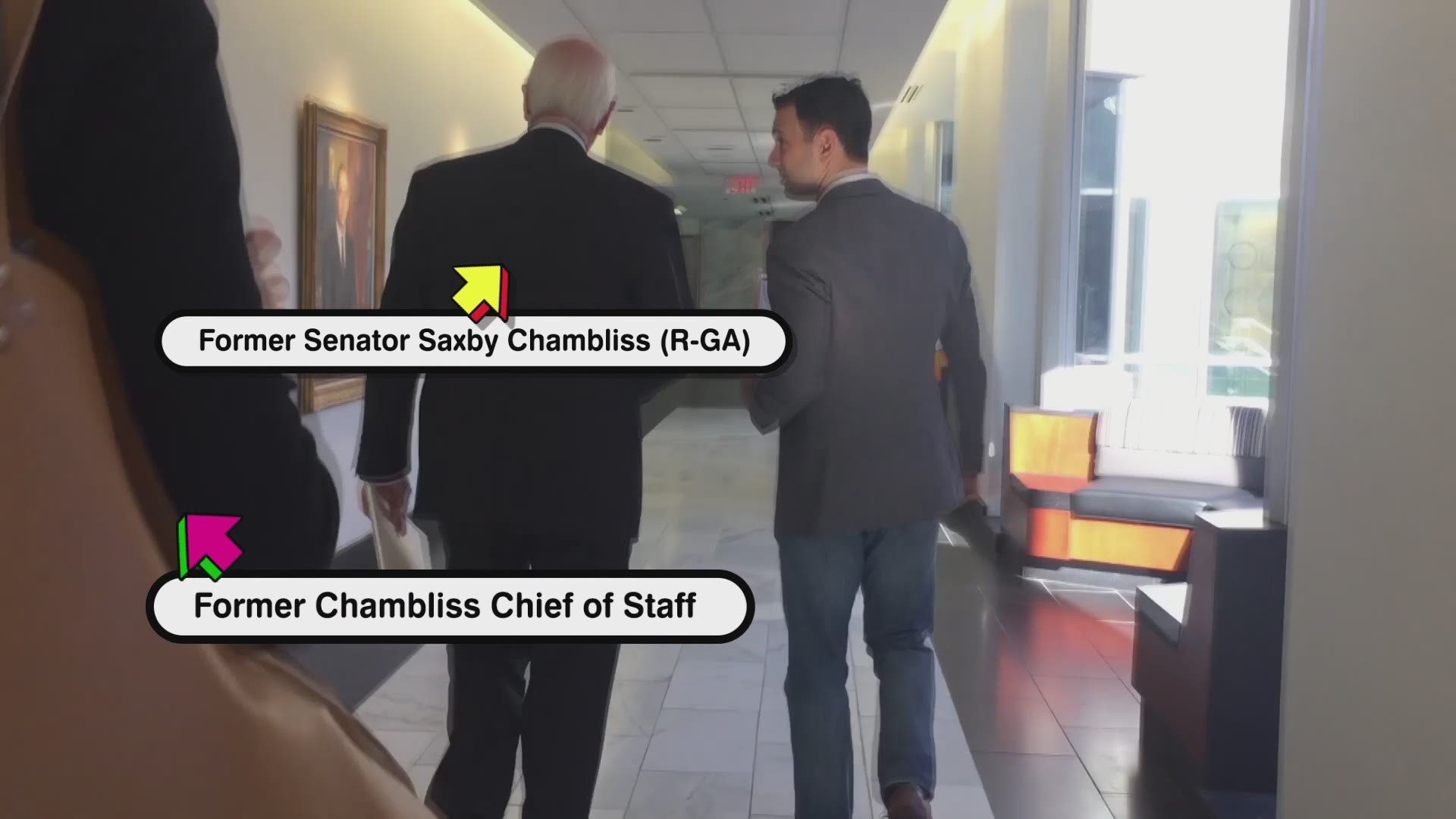WASHINGTON, D.C., USA — Editor's Note: The Tampa Bay Times and former 10News reporter Noah Pransky previously teamed up to investigate so-called "zombie campaigns," which involved political committees spending campaign contributions long after those campaigns ended. The coverage earned the investigative reporters involved a 2019 Alfred I. duPont-Columbia University Award. This piece is the latest installment in the series and was originally published by the Tampa Bay Times. You can find their link to the story by clicking here or scroll down to continue reading.
The federal agency that oversees elections demanded explanations on Wednesday from about 50 politicians who are operating zombie campaigns — political committees that keep spending contributions long after the campaign has ended.
The Federal Election Commission sent letters to the campaigns Wednesday asking why their campaign accounts were still open. It flagged specific expenses by at least 17 campaigns and asked them to justify the spending.
It is the first action taken by the agency since it announced in April 2018 that it would start scrutinizing the spending of what it called “dormant” campaigns.
That new policy was triggered by a 2018 Tampa Bay Times/10News WTSPinvestigation, which revealed candidates spending campaign money for years or decades after leaving office. Federal law does not allow campaign money to be spent improving politicians’ personal lives.
Read the investigation: The campaign is over. The candidate might be dead. But the spending never stops.
The federal agency sent letters to at least 27 campaigns highlighted in the Times/WTSP investigation and to several other prominent politicians, including former presidential candidate U.S. Sen. Mitt Romney, R-Utah., and former U.S. Rep. Michele Bachmann, R-Minn.
The letters gave the campaigns 35 days to respond. After that, the federal agency could launch an enforcement action that could result in fines, said Adav Noti, a former attorney for the agency who is now a senior director for the Campaign Legal Center, a Washington D.C. watchdog group that filed a petition challenging the spending.
“There have been many reports in recent years about the FEC failing to enforce the law,” he said. “It’s a breath of fresh air for the agency to respond to the Tampa Bay Times reports and our legal filings by taking steps, even in a preliminary way, to address the problem.”
The agency’s letter to Romney’s presidential campaign flagged nearly $40,000 in disbursements as apparent personal use of campaign funds and asked the campaign to explain the spending. The letter highlighted $2,377 in document storage, $1,000 in legal consulting and $36,000 in compliance consulting.
The agency flagged $1,456 that Bachmann spent on storage between July and December 2018 as potential personal use of campaign funds
For former U.S. House candidates, the agency’s review focused on politicians who had not run for or held office during the previous two years. It gave former U.S. Senate and presidential candidates a four-year window.
The letter to South Florida Rep. Mark Foley identifies almost $23,000 in spending in just the last six months of 2018 that may be “apparent personal use of campaign funds,” including sponsorships and membership dues for Palm Beach organizations such as the Forum Club & Economic Forum.
Foley did not respond to requests for comment.
A letter to former South Carolina Democratic congressman Robin Tallon questioned spending in 2018 that “suggest ongoing activity unrelated to winding down.”
“The candidate did not participate in an election since 1992,” the letter continued.
Tallon, who became a lobbyist in 1993, was one of the candidates featured extensively in the Times/WTSP investigation. He still has more than $1 million in his campaign account.
Since 2005, he has spent $31,000 in “reimbursements” paid to himself without any explanation, federal records show. Another $20,000 was paid to his son, Robert Tallon III, who was listed as campaign treasurer. His campaign bought a $4,000 computer in 2007, a $2,300 computer in 2014 and a $900 iPad in 2017.
He said Thursday he was unaware of the letter requesting an explanation. Asked why he has kept his campaign account open for 26 years, he responded: “I may run for president or governor of South Carolina.”
The Times/WTSP investigation included a database of 102 campaigns that had continued spending at least two years after the candidate’s political campaigns had ended. Former lawmakers and former candidates spent leftover donations on airline tickets, club memberships, a limo trip, cell phones, parking and new computers, the report found.
Seven other campaigns highlighted by the Times/WTSP shut down on their own since the investigation ran, federal records show.
The Romney and Bachmann campaigns weren’t included in the database because the news organizations developed strict rules for which candidates they included in the database to give campaigns time to wind down legitimate spending.
In March, the U.S. House of Representatives voted for a proposal that would have forced politicians to eventually shut down their campaigns. But the change was bundled with a larger package of voting rights and campaign finance changes pushed by congressional Democrats called the For the People Act. The Republican-controlled U.S. Senate didn’t take up the bill.
The Campaign Legal Center petitioned the Federal Elections Commission in 2018 to introduce stricter rules for how former lawmakers spend leftover campaign money. That would make it easier to take action against campaigns that received letters, Noti said.
“It will only change behavior if they’re willing to bring enforcement proceedings against the candidates who don’t take remedial action,” he said.
Jordan Libowitz, communications director for watchdog group Citizens for Responsibility & Ethics in Washington, called the letters a “significant effort to rein in former lawmakers, many of whom now use the money to benefit their new careers as lobbyists.
“Donations to a campaign committee were given for the purpose of electing a particular candidate,” he said. “They were not meant as tools for lobbyists who never again plan to use them to seek office."
What other people are reading right now:
- Missing Utah girl's body found buried less than a block from her home
- Scary video captures shark as it gets closer and closer to swimmer at Panama City Beach
- Divers accidentally stumble upon 19th century shipwreck in the Gulf of Mexico
- 'Just praying. I'm speechless.' | Batter breaks down after his line drive hits little girl
- No license needed: Go saltwater fishing this Saturday and Sunday in Florida
►Have a news tip? Email desk@wtsp.com, or visit our Facebook page or Twitter feed.



